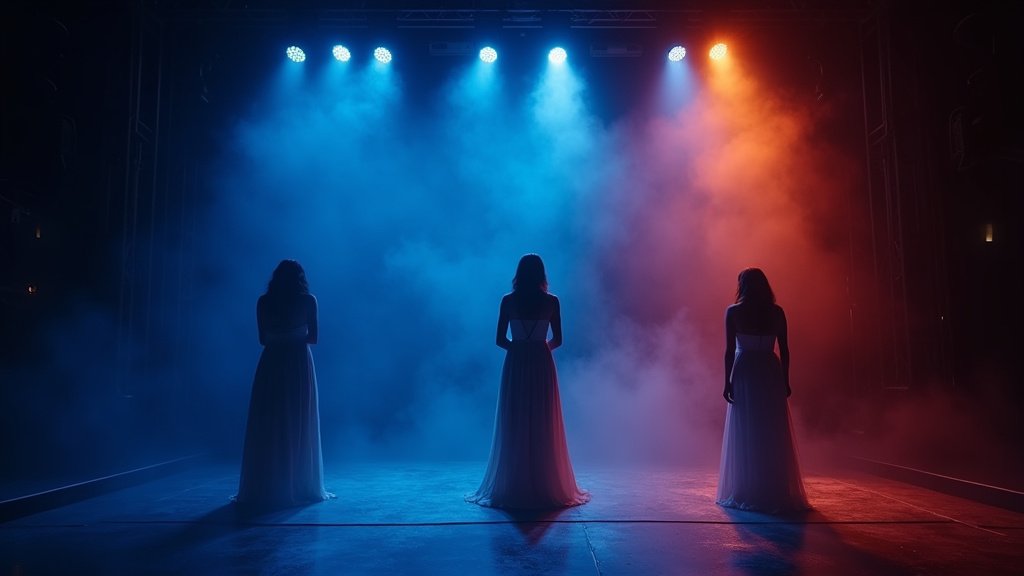As the music world turns its gaze towards the next wave of Latin Grammy contenders, a vibrant ecosystem of independent artists is quietly reshaping the sonic landscape. These artists, often operating outside the traditional industry machine, are pushing boundaries and evolving the very definition of Latin music, earning them a rightful place in the conversation for upcoming awards. Their innovative approaches, marked by bold experimentation and raw emotional depth, signal a significant shift in the genre, one that merits serious consideration.
The Allure of the Unconventional
Among the cohort of artists making waves is Girl Ultra, a name that has become synonymous with a distinctive brand of darkly hued dance-pop. Her intimate EP, ‘Blush,’ has garnered significant attention for its sophisticated production and evocative lyricism. Girl Ultra masterfully blends melancholic atmospheres with infectious rhythms, creating a sound that is both danceable and deeply introspective. Her work taps into a vein of contemporary R&B and electronic music, filtered through a distinctly Latin sensibility, offering a fresh perspective on urban sounds.
Further cementing the argument for indie artists deserving recognition is Juana Aguirre. This Argentine talent has captured the attention of critics and listeners alike with her avant-garde sophomore effort, ‘Anónimo.’ The album is widely praised for its unflinching exploration of disturbing vulnerability and an almost otherworldly beauty. Aguirre’s sonic palette is adventurous, often defying easy categorization, yet it resonates with a profound emotional honesty. Her willingness to delve into the darker, more complex aspects of the human experience through her music sets her apart, offering a challenging yet rewarding listening experience that speaks volumes about the evolution of artistic expression within Latin music.
Trendsetting Soundscapes from Mexico City
Contributing to this exciting tapestry of independent Latin music is Mabe Fratti. Hailing originally from Guatemala but now a fixture in the vibrant Mexico City scene, Fratti is recognized for her trendsetting fourth album. This release is a masterful amalgamation of diverse influences, seamlessly weaving together elements of jazz, classical composition, post-rock textures, and the ethereal shimmer of dreamy synths. Fratti’s ability to synthesize these disparate genres into a cohesive and compelling whole showcases a remarkable artistic vision. Her work is not merely a fusion; it’s a redefinition of musical possibilities, demonstrating how artists can draw from a global wellspring of influences while maintaining a unique cultural identity. The reviews for her latest work consistently highlight its innovative spirit and its contribution to a more expansive understanding of what Latin music can encompass.
A Call for Consideration
These artists—Girl Ultra, Juana Aguirre, and Mabe Fratti—represent just a fraction of the immense talent thriving in the independent Latin music scene. Their commitment to artistic integrity, their willingness to experiment, and their profound impact on the evolution of the genre are undeniable. While the Latin Grammys have historically celebrated a broad spectrum of artists, there is a compelling case to be made for increased recognition of those who, by virtue of their indie status, often fly under the mainstream radar. Their contributions are not peripheral; they are central to the ongoing innovation and diversification of Latin music. As the industry continues to evolve, giving a platform and recognition to these groundbreaking artists will only serve to enrich the cultural dialogue and inspire future generations. Their unique voices and visionary music deserve not just consideration, but celebration.
The ongoing reviews and critical reception of their work underscore the significance of their artistic output. This is a moment to acknowledge the artists who are not just participating in the Latin music conversation but are actively leading its charge into new and exciting territories. Their dedication to crafting music that is both personal and universal, experimental yet accessible, makes them essential voices for the future of Latin music.

























